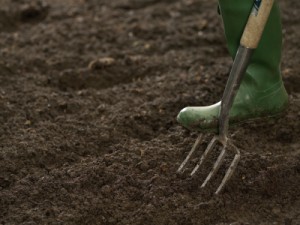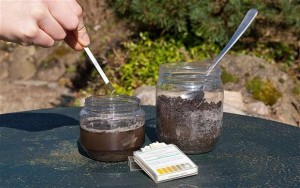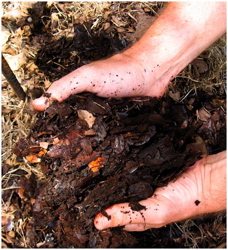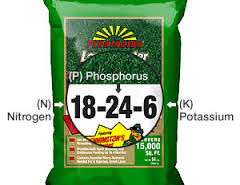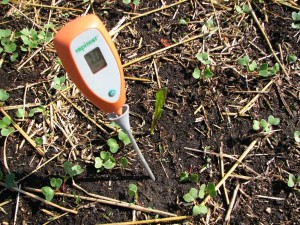Are you ready to begin planting an amazing vegetable garden that will promise all kinds of amazing food in the near future? If so, there are a number of steps to handle, most of which you may already have covered. However, don’t forget about one very important part of every vegetable garden: the soil. Without the right soil, you’ll never get the vegetables you want from all your hard work. Fortunately, it doesn’t have to be difficult. Simply follow the below directions regarding your vegetable garden soil and you’re bound to see the results you want.
Preparing the Soil
Good soil starts long before you ever plant any vegetables. Without preparing your soil properly, you’ll always be playing catch-up, at best. It would be like building your home on a bad foundation and then hoping you could later fix the problem as it unravels below you. Unless you want to uproot your entire garden and start over later, this is the work you’re going to need to do at the onset.
Keep in mind, too, that all types of different vegetables, gardens and pre-existing soil types will need different kinds of help. So there may be a lot you need to do in order to get the perfect mixture you need to grow your vegetables perfectly. One thing just about every soil type should provide, though, when you have it perfected is a loose surface. Soil that is hard, thick or coarse will cause all kinds of problems. But loose, soft soil will allow plants to break through with ease and make draining a lot simpler too.
That being said, this will provide a helpful summary to get you headed in the right direction. For most people, it will definitely provide enough information for their vegetable gardening needs.
Test Your Soil
One easy way to augment the information we provide here is by having your soil tested. These days it’s such an affordable and simple task that there’s really no good reason not to do it. When you know the exact make-up of your soil, you’ll have a much easier time knowing how to amend it in order to gain the best possible version for your planting needs. When you have these results, you’ll know exactly how much of which of the following you need to produce the best soil possible for your vegetable garden.
Organic Material
All plants need organic material to grow from. This is just part of their make-up, so any attempt at producing delicious, robust vegetables need to centre on this important feature. Even if you don’t intend to plant an “organic” garden and will be using chemicals down the line, you still want some all-natural material present in the soil. There’s just no replacing this part of the equation.
Organic material is important to your flowers for a number of reasons. The most important and simplest reason though is because without it, your vegetables will never receive all the nutrients they need to grow big and strong. Plants simply won’t thrive without access to plenty of organic material.
However, organic material is also essential for softening your soil. Remember how we pressed the important of this characteristic earlier? No one’s soil is going to be soft enough on its own, meaning organic material is a great way to augment it in order to get the best results possible. The fact that it also helps provide nutrients to your plants is just a great secondary benefit at the same time. When you have enough organic material softening the soil, it’s easy for your plant’s roots to easily spread through the dirt and reach all the other life-sustaining elements they need.
On top of that, organic material also works like tiny sponges within your soil. This means that you get more benefit from each drop of water that falls into your garden. The organic material binds it and holds it in the soil, meaning none of it will go to waste.
You can get organic material from all kinds of different sources. Well rotted manure is a very popular version you can pick up at just about any gardening store. However, you may also be interested in starting your own compost pile and creating organic matter at home. Either will work.
Nitrogen, Phosphorous and Potassium
Aside from organic matter, your garden will also benefit from nitrogen, phosphorous and potassium. These three basic nutrients make up the basic building blocks of any successful garden. In fact, you’ll see them listed on most bags of fertilizer as “N-P-P.” Those three letters will be accompanied by three numbers that describe the contents within (for example, 10-10-10). You want these three important nutrients to help augment your natural soil and ensure it’s high enough quality for your vegetable’s needs.
Adding in N-P-K
Let’s delve a little further in how to use these nutrients to get a better quality soil for your vegetable garden. If you find your soil needs more nitrogen, for example, you’d add it in with either a chemical fertilizer or an organic one. For the former, look for that high first number on the bag, like 10-3-3. This will make sure nitrogen gets to lead the dance. If you want to do it organically, you’ll have to find and plant nitrogen fixing plants.
Phosphorous is the same thing. Just look on a bag of fertilizer for one that has a high centre number. Otherwise, you’ll want to use rock phosphate or bone meal, if you’d like to go the organic route.
For potassium, look at the third number being the highest. Organic gardens can also get more potassium thanks to green sand, wood ash or potash.
Organic options are more readily available than ever these days, so although some of these nutrient sources may sound a bit exotic, you shouldn’t have any issues finding them. A local garden shop or nursery should know exactly what you need and have it in stock.
Trace Nutrients
There are a number of other trace nutrients that vegetable gardens love for growing. These are things that your plants may absolutely need due to your soil or may not be as big a priority. Fortunately, most modern soil will include these nutrients, however, if you’re going for an organic product, you need to take the time to ensure that each one of these is present in the soil or your vegetables will essentially starve.
The nutrients you want to know about are boron, copper, chloride, iron, calcium, manganese, molybdenum and zinc. Again, most of these will common with commercial soils, but check to make sure. This is also where a soil test can help show you where you may be lacking.
Your Soil’s pH
Testing will let you know where your soil stands, but where you want to get it is pretty consistent across vegetable gardens. Your pH should fall between 6 and 7. So if your tests come back with a much higher score, it’s time to drop it. Obviously, you need to increase it if it comes back much lower.
Although soil may not be the most exciting part about gardening, it’s absolutely essential. Commit to the above and you’ll see better results from the beginning.
